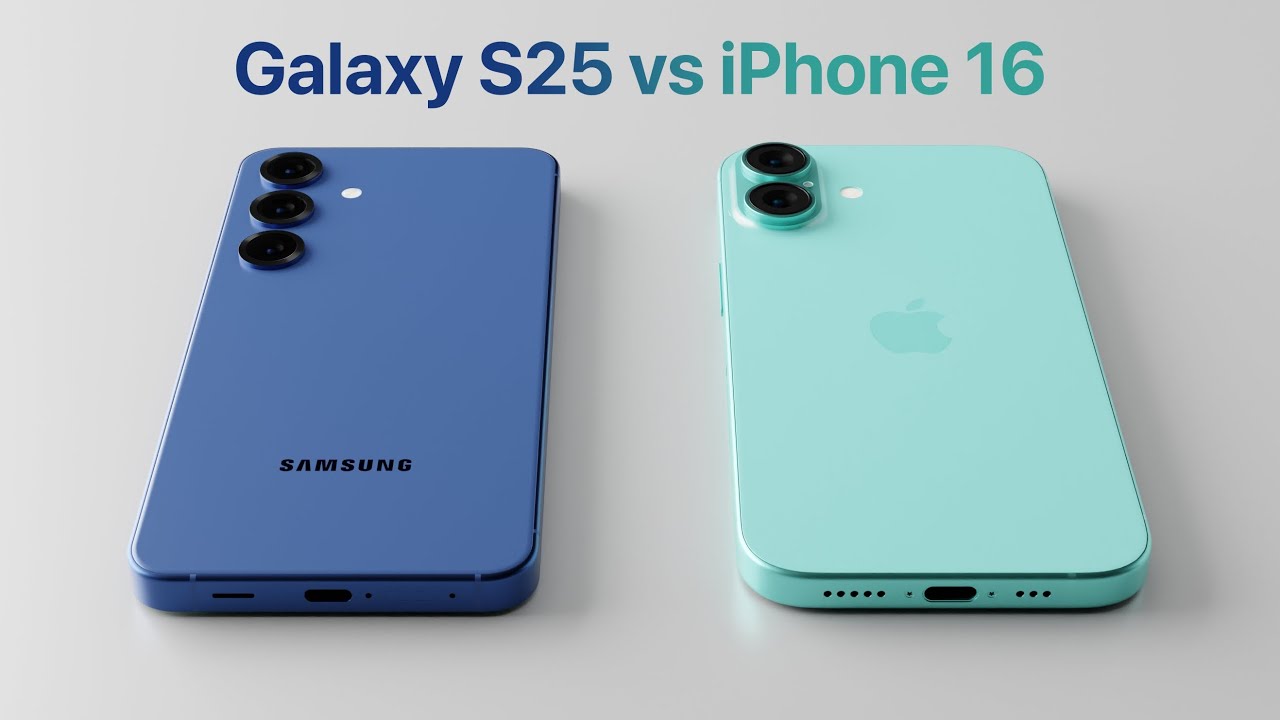iPhone 16 vs Samsung Galaxy S25: If you are in search of a high-end smartphone and your budget is not so high, then iPhone 16 and Samsung Galaxy S25 are the best options. Both have high-end features, fantastic cameras, and high-performance processors, so it is perfect for everyday use, photography, and gaming.
iPhone 16 runs on iOS v18 and features Apple’s latest Bionic A18 chipset, while Samsung Galaxy S25 comes with Android v15 and is powered by the Qualcomm Snapdragon 8 Elite chipset. Let’s compare their specifications to see which one is better for you.
iPhone 16
iPhone 16 boasts a 6.1-inch OLED screen with a 1179×2556 pixel resolution. It has a Dynamic Island, HDR screen, True Tone, and 2,000 nits peak brightness, giving it great visuals. iPhone 16 is thin at 7.8mm and weighs just 170g, making it comfortable to hold.

It runs on the Apple Bionic A18 chipset with a 4.04GHz Hexa-core processor for effortless performance. It comes with 8GB RAM and 128GB storage but no expandable memory option. The camera is equipped with a 48MP primary sensor a 12MP secondary camera for enhanced photography, and a 12MP front camera. It has support for 4K recording at 60fps. iPhone 16 Has a 3561mAh battery with support of 25W wireless charging.
Samsung Galaxy S25
Samsung Galaxy S25 has a 6.2-inch LTPO AMOLED screen with a 1080×2340 pixels resolution. It boasts a 120Hz refresh rate, HDR10+ support, and Gorilla Glass Victus 2 protection. The device is light at 162g and thinner at 7.2mm.
Samsung Galaxy S25 has a Qualcomm Snapdragon 8 Elite processor with a 4.47GHz octa-core processor, making it among the fastest Android phones. It comes with 12GB RAM and 256GB storage but lacks memory card support. The camera features a 50MP primary, a 12MP ultra-wide, and a 10MP telephoto OIS lens. The front is 12MP with 4K video capture. Samsung Galaxy S25 has a 4000mAh battery and supports 25W fast charging and 15W wireless charging.
iPhone 16 costs ₹74000 on Flipkart. Samsung Galaxy S25 is priced at ₹80,999 and offers a solid contender to flagships. Both of these devices support high-end functionality, so ultimately it’s down to which you want – iOS or Android.
